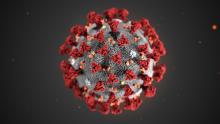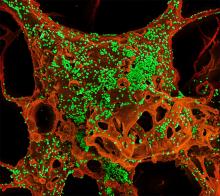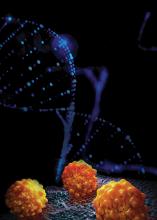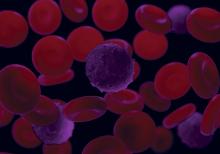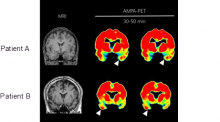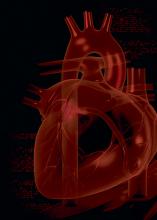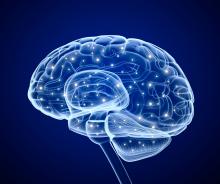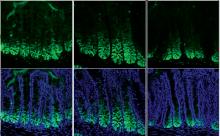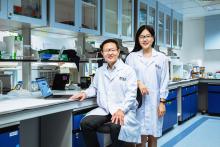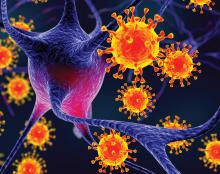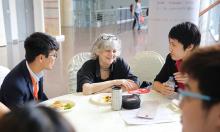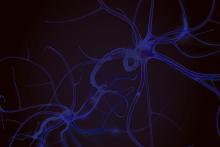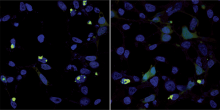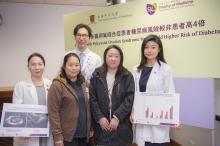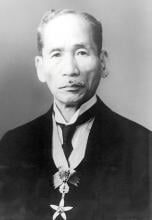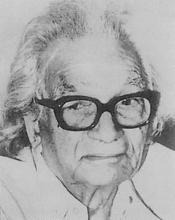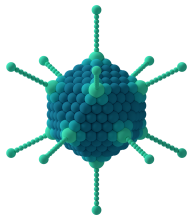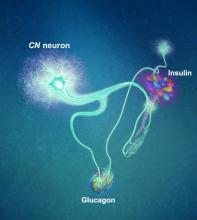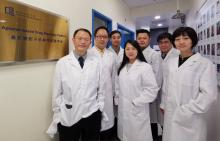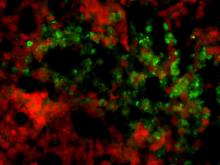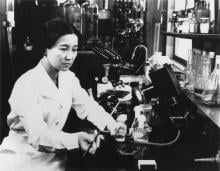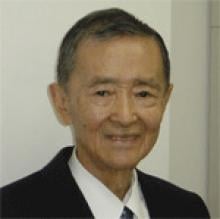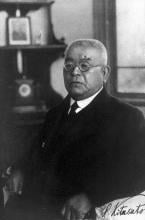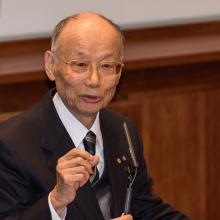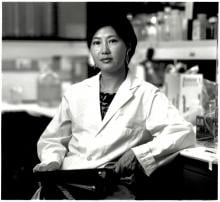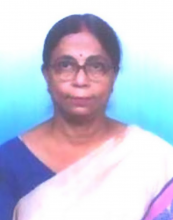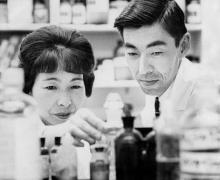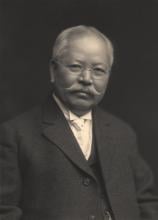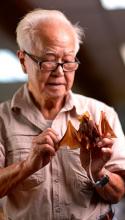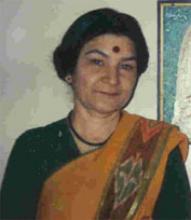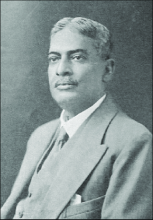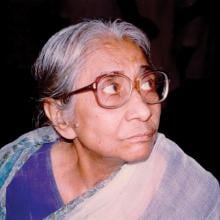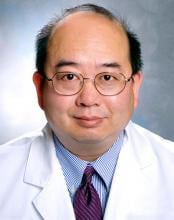Diseases
News
31 Jan 2020
Looking for experts to who can comment on the current coronavirus outbreak? With the novel coronavirus outbreak happening now, we have prepared an abbreviated Focus On to help connect journalists with experts who are prepared to speak with international media about different aspects, including public health, virology, travel, tourism, economic impacts and spread of information.
24 Jan 2020
Looking for experts to who can comment on the current coronavirus outbreak? With the new coronavirus outbreak happening now, we have prepared an abbreviated Focus On to help connect journalists with virus experts who are prepared to speak with international media as the situation unfolds.
24 Jan 2020
Testing for a gene expression pattern could reduce the number of colorectal cancer patients referred for unnecessary radical surgery.
23 Jan 2020
West Nile virus (WNV) inhibits autophagy — an essential system that digests or removes cellular constituents such as proteins — to induce the aggregation of proteins in infected cells, triggering cell death and brain inflammation (encephalitis), according to Hokkaido University researchers.
23 Jan 2020
Universiti Malaysia Sarawak haematologist Kuan Jew Win is looking for ways to detect certain blood diseases and cancers
early.
22 Jan 2020
A new compound could help doctors detect epileptic foci in the living human brain as well as further the understanding of psychiatric disease.
21 Jan 2020
Using tissue engineering techniques, researchers are developing living heart valves that can grow after implantation in the human heart.
20 Jan 2020
A resource for journalists to find stories and sources. Focus On: Brain highlights research and experts exploring questions ranging from basic structure and function, to technology, diseases and treatments.
20 Jan 2020
Blocking a central nervous system protein could treat irritable bowel syndrome.
14 Jan 2020
A team of researchers from the National University of Singapore has developed a personalised assessment tool which can detect the incidence of cancer, predict patient survivability and determine patient suitability for immunotherapy cancer treatment.
13 Jan 2020
A hyperactive gene response to Japanese encephalitis virus infection ultimately leads to brain inflammation.
13 Jan 2020
The war against antibiotic resistance requires a conceptual revision, namely design and creation of new types of degradable antibiotics with novel intracellular interactions, says Nobel Prize in Chemistry (2009) laureate Ada Yonath.
10 Jan 2020
An implantable device has the potential to revolutionize how neuroscientists study the brain and treat diseases.
09 Jan 2020
A small molecule could hold the key to tackling the protein build-up in nerve cells that occurs in several devastating neurological disorders.
08 Jan 2020
Much-needed insight into raising young children with autism in Malaysia highlights the need to improve local research, awareness, acceptance and support services.
08 Jan 2020
New findings could lead the way towards treatments for intellectual disability in Down syndrome.
20 Dec 2019
Professor Ronald Ching Wan MA, Professor and Head of the Division of Endocrinology and Diabetes of the Department of Medicine and Therapeutics, and Professor Siew Chien NG, Professor of the Division of Gastroenterology and Hepatology of the Department of Medicine and Therapeutics and Associate Director of the Centre for Gut Microbiota Research under the Faculty of Medicine at The Chinese University of Hong Kong (CUHK), have received Croucher Senior Medical Research Fellowships 2020 in recognition of their excellent achievements in scientific research in medicine and the support that gives to the next generation of clinician scientists.
20 Dec 2019
Over 70% of rare disease patients and non-patients are aware of the patient registry but the participation rate accounted for less than 30%, according to a recent survey of the public’s acknowledgement of and participation in the rare disease patient registry.
20 Dec 2019
A recent study conducted by the Faculty of Medicine at The Chinese University of Hong Kong (CUHK) revealed that Chinese women with polycystic ovary syndrome (PCOS) are at 4-fold higher risk of developing type 2 diabetes mellitus (T2DM) compared with those without the disorder, and also have younger onset of diabetes.
09 Dec 2019
Inaugural Nipah virus Conference convenes leading experts to strengthen global collaboration, improve efforts to combat deadly virus.
06 Dec 2019
Scientists in Korea find a protein that mediates the interaction between the cellular systems involved in rapid responses against foreign genes in plants
26 Nov 2019
Umetaro Suzuki (7 April 1874 – 20 September 1943) was a Japanese scientist best remembered for his research on beriberi, a disease caused by vitamin B1 deficiency, characterized by limb stiffness, paralysis and pain.
22 Nov 2019
Salimuzzaman Siddiqui (19 October 1897 – 14 April 1994) was an artist and chemist from Pakistan whose research focused on natural products from plants.
14 Nov 2019
Foremost society of kidney specialists highlights Singapore-led global study to better understand diabetes complications and reduce their prevalence.
30 Oct 2019
Development of novel agonist antibodies to treat cancer by collaboration between academia and industry
24 Oct 2019
Large-scale study to identify human adenovirus genotypes in Singapore leads to discovery of four new adenovirus strains and increase in strains linked to severe diseases. Researchers suggest use of antiviral therapies and adenovirus vaccines, and routine monitoring of adenovirus strains.

24 Oct 2019
A recent research led by a scientist at City University of Hong Kong (CityU) has discovered an easily transmitted DNA piece that can make a new type of hyper-resistant and deadly superbug become hyper-virulent quickly, posing an unprecedented threat to human health.
23 Oct 2019
When a fly eats sugar, a single brain cell sends simultaneous messages to stimulate one hormone and inhibit another to control glucose levels in the body. Further research into this control system with remarkable precision could shed light on the neural mechanisms of diabetes and obesity in humans.
23 Oct 2019
A research team from the School of Chinese Medicine at Hong Kong Baptist University (HKBU) has successfully developed a novel aptamer, i.e. a single-stranded piece of DNA, for the treatment of osteogenesis imperfecta (OI) with the aid of artificial intelligence (AI) technology. It is the first time a drug in Hong Kong has been granted orphan drug designation by the US Food and Drug Administration (FDA).
18 Oct 2019
A compound effective in killing chemotherapy-resistant glioblastoma-initiating cells (GICs) has been identified, raising hopes of producing drugs capable of eradicating refractory tumors with low toxicity.
Events
Sorry, no events coming up for this topic.
Researchers
Sorry, no researchers coming up for this topic.
- « first
- ‹ previous
- 1
- 2
- 3
Giants in history
Ruby Sakae Hirose (1904 – 1960) was a Japanese-American scientist whose research contributed significantly to our understanding of blood clotting, allergies and cancer.
Iranian physician and bacteriologist Azar Andami (8 December 1926 – 19 August 1984) developed a cholera vaccine to combat an outbreak that swept through the Middle East, India, Southeast Asia, and Africa in 1937.
Michiaki Takahashi (17 February 1928 – 16 December 2013) was a Japanese virologist who developed the first chickenpox vaccine.
Irene Ayako Uchida’s (8 April 1917 – 30 July 2013) strides to understand genetic diseases such as Down syndrome paved the way for early screening of chromosomal abnormalities in foetuses.
Baron Kitasato Shibasaburo (29 January 1856 – 13 June 1931) was a Japanese physician and bacteriologist whose work led to a new understanding of preventing and treating tetanus, diphtheria and anthrax.
By isolating soil microorganisms and studying the compounds they produce, Satoshi Omura (born 1935) discovered almost 500 organic compounds with unique properties that were produced by these microorganisms, including many new antibiotics.
Chinese-American virologist and molecular biologist Flossie Wong-Staal (27 August 1946 – 8 July 2020) was the first scientist to clone HIV and determine the function of its genes.
Maharani Chakravorty (1937 – 2015) was one of India’s earliest molecular biologists whose research paved the way for advances in the treatment of bacterial and viral infections.
Husband and wife team, Kimishige (3 December 1925 – 6 July 2018) and Teruko Ishizaka (28 September 1926 – 4 June 2019) discovered the antibody class Immunoglobulin E (IgE) that triggers allergic reactions. They also discovered that IgE antibodies attach to white blood cells, known as mast cells, releasing histamine, which causes allergic reactions.
Japanese chemist Takamine Jokichi (3 November 1854 – 22 July 1922) founded the Tokyo Artificial Fertilizer Company, where he isolated a starch-digesting enzyme (named takadiastase) from the fungus Aspergillus oryzae.
Lim Boo Liat (21 August 1926 – 11 July 2020), a leading authority in the conservation of Malaysia’s biological diversity, had his initial interest in the outdoors piqued by nature lessons in school. Lim, who helped found the National Zoo of Malaysia and re-establish the Malaysian Nature Society, had a particular interest in researching zoonotic diseases associated with small animals.
A pioneer of bio-organic chemistry, Darshan Ranganathan (4 June 1941 – 4 June 2001) is remembered for developing a protocol for synthesising imidazole, a compound used to make antifungal drugs and antibiotics. Widely considered India’s most prolific researcher in chemistry, she also published dozens of papers in renowned journals on protein folding, molecular design, chemical simulation of key biological processes, and the synthesis of functional hybrid peptides and nanotubes.
Indian scientist and physician Upendranath Brahmachari (19 December 1873–6 February 1946) is best known for creating a drug called Urea Stibamine, used to safely and reliably treat visceral leishmaniasis (or Kala-azar), a severe infection caused by the Leishmania parasite.
Filipino chemist and pharmacist Manuel A. Zamora (29 March 1870 – 9 July 1929) is best remembered for his discovery of the tiki-tiki formula to combat beriberi, a disease caused by Vitamin B1 deficiency.
Indian organic chemist Asima Chatterjee (1917 to 2006) studied the medicinal properties of plant products, especially compounds known as vinca alkaloids.
Umetaro Suzuki (7 April 1874 – 20 September 1943) was a Japanese scientist best remembered for his research on beriberi, a disease caused by vitamin B1 deficiency, characterized by limb stiffness, paralysis and pain.
Salimuzzaman Siddiqui (19 October 1897 – 14 April 1994) was an artist and chemist from Pakistan whose research focused on natural products from plants.
Barry Paw (29 August 1962 – 28 December 2017) was a biologist and oncologist who discovered several novel genes and their functions in red blood cells.


